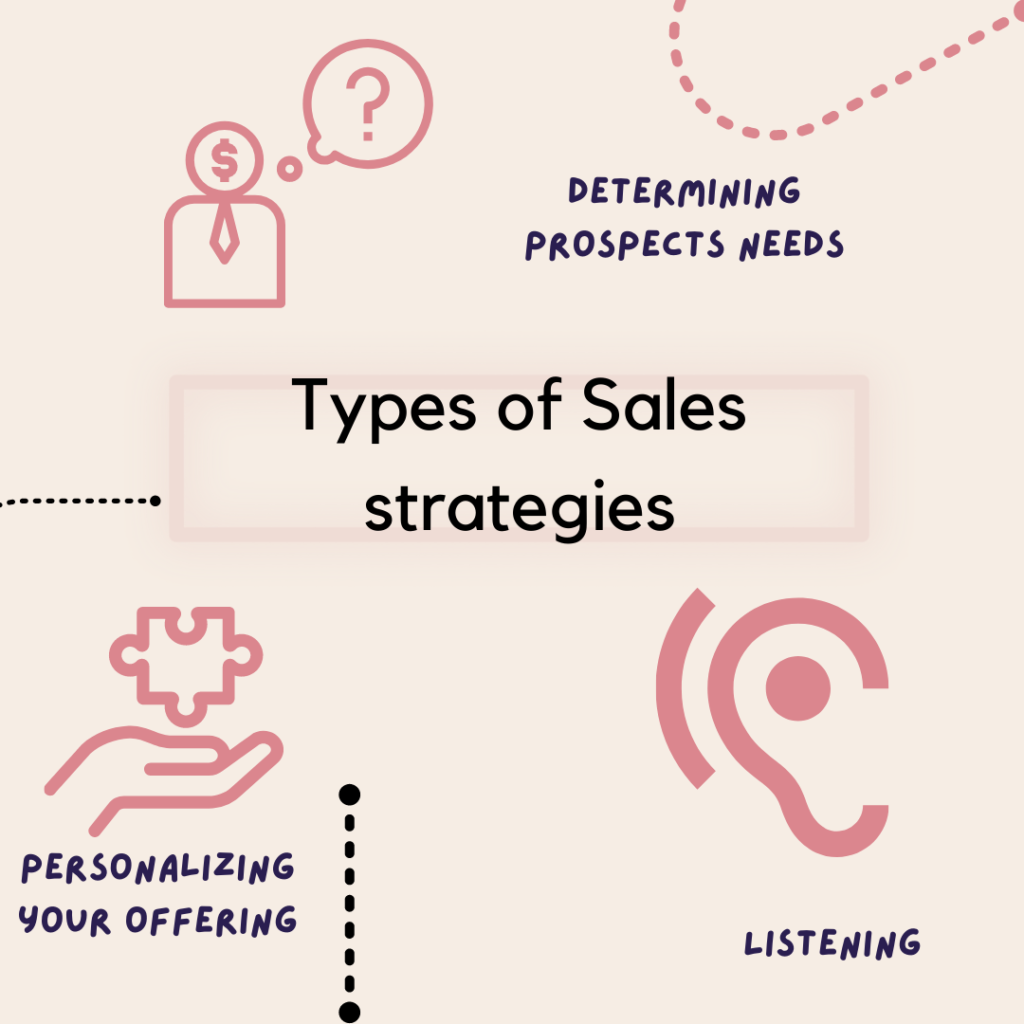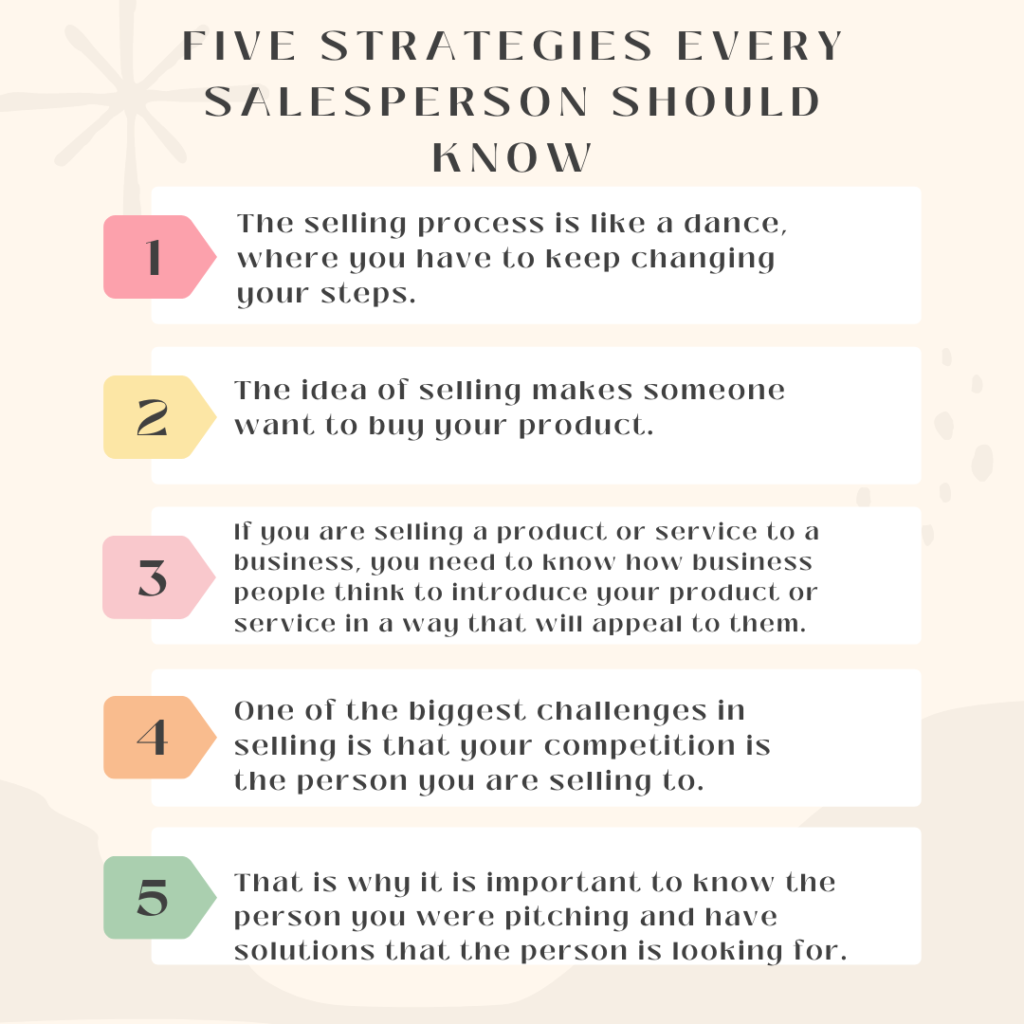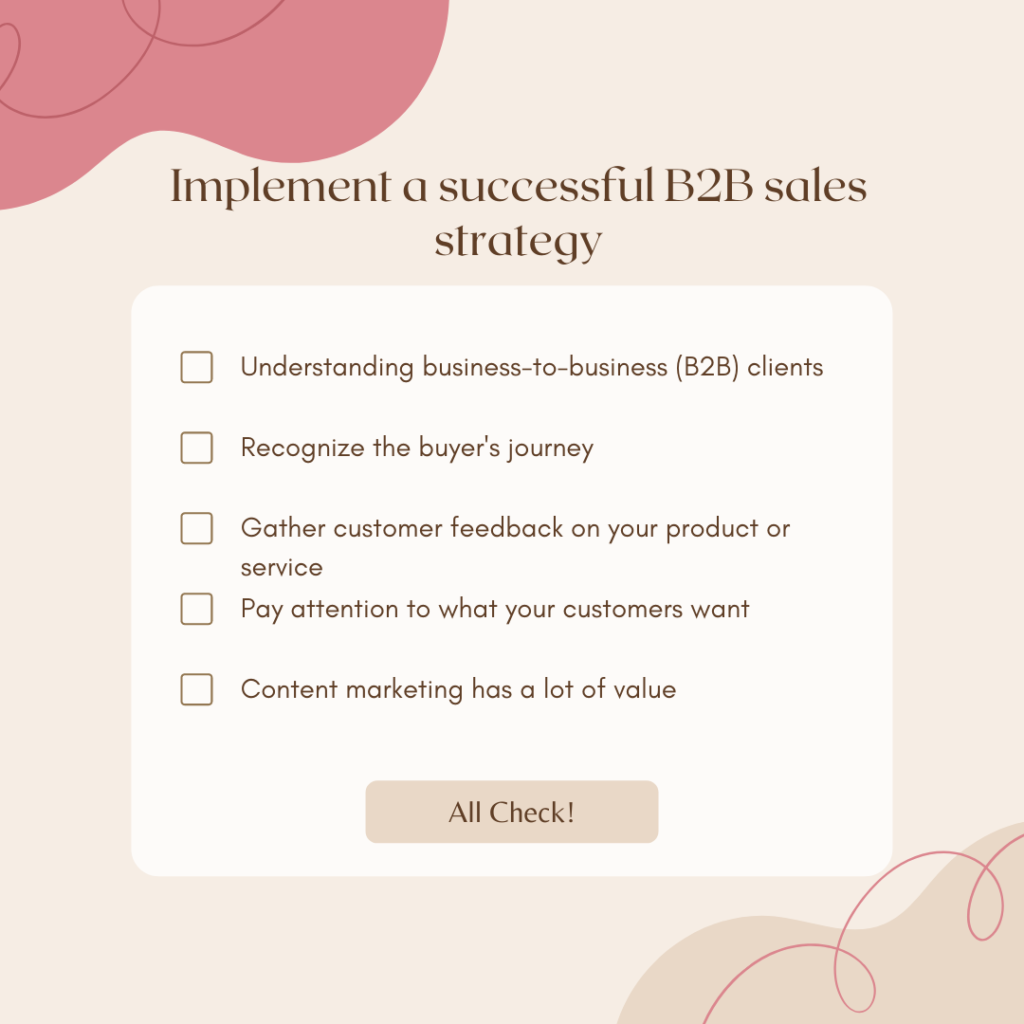
Business-to-business sales strategy is one of the lead generation tactics used to help companies attract new clients. It has many benefits, such as reaching the target market, presenting an attractive value proposition, and soliciting potential clients’ interest through content marketing. It’s important to remember that the B2B strategy is not the same as the B2C one. B2B sales is a huge market, and it’s growing faster than ever. Today, more than ever, B2B sales are on the rise. Although, with that growth comes a need for skilled salespeople, and today’s sales teams need to adapt and change with the market. That’s why your B2B sales strategy is so important. It’s the focus of your sales process, which sets you apart from your competition.
A B2B sales strategy is all about getting a lead, which means you need to learn what works and what doesn’t. It’s also important to have a specific goal in mind and a specific strategy that you’re using to reach that goal.
Why it’s important to have an effective B2B sales strategy?
Every salesperson should have a plan in place. The plan should include a variety of strategies, which should be tailored to the audience. For example, if you are selling to a company, you might build trust. If you are selling to a client, you could build relationships. If you are selling to a prospect, you could focus on finding out their pain points. What leads to a successful B2B sales strategy is to consider the unique needs of each person you are trying to influence.
The first step of B2B sales is to create a strategy. The strategy should be simple, clear, and easy to follow. Salespeople need to be aware of their products and their target audience. We can do this by doing market research and having a detailed understanding of your target customer. The strategy should also be flexible, as it will change as the market changes. Salespeople should also be able to stay focused on the end goal. They should also have the ability to learn quickly and create a plan for moving forward. Salespeople should also be able to stay committed and avoid distractions. B2B sales are one of the most challenging types of sales. There are many other different factors to consider when selling to businesses and making the sale. That’s why it’s important to know the strategies that will help you nail your targets.
Types of sales strategies

- The first strategy is determining the prospect’s needs. While you don’t want to sell to too many prospects, you also don’t want to be turning away any potential business. So, it’s important to know what the prospect’s needs are and what you can offer to make them happy.
- The second strategy is about personalizing your offering. You must understand your customer’s business. You need to know what their industry is, their challenges, and what they need.
- The third strategy is about listening. It would be best to always listen to what your customers were saying and what they wanted.
Why is a B2B Sales Strategy important?
A B2B sales strategy is important for every salesperson because it helps them make the sale. When you have a B2B sales strategy, you give your customers the information they need to make a purchase decision.
In addition to that, you’re also providing them with the confidence that your company is reputable and reliable. For instance a customer is looking for a certain product but doesn’t know it. In that case, a B2B sales strategy can be a great way to introduce the company and the product. It could be a best way to use your company’s expertise to help customers make purchasing decisions.
Five strategies every salesperson should know

Here are five strategies that every salesperson should know:
1. The selling process is like a dance, where you have to keep changing your steps.
2. The idea of selling makes someone want to buy your product. To do that, you have to introduce a product or service in a way that makes sense to the person you are talking to.
3. If you are selling a product or service to a business, you need to know how business people think to introduce your product or service in a way that will appeal to them.
4. One of the biggest challenges in selling is that your competition is the person you are selling to.
5. That is why it is important to know the person you were pitching and have solutions that the person is looking for.
What are the benefits of a B2B sales strategy?
B2B sales are often compared to B2C sales because they have similar strategies. However, the approach to selling to businesses is different because of the size of the companies and the levels of employees. To be successful at selling B2B, you must have a well-rounded approach to the sales process from the beginning. When you understand the process and the different strategies, you’ll use that knowledge to increase your sales.
You are also selling to your competitors. Using a B2B sales strategy can create a competitive advantage and maintain a healthy lead over your competitors. What are the benefits of a B2B sales strategy? There are a lot of benefits, including increased profitability and increased customer satisfaction. Businesses typically have a more complex purchasing decision process and thus are more involved in a B2B sales strategy. They might be in the process of choosing between two products or services, so they are more willing to pay for the more complex one. B2B sales can also be more profitable than B2C sales because of a larger market.
How to establish a good B2B sales funnel?
To keep up with the competition, it is crucial to create a sales funnel that is effective and efficient. Sales funnel strategies should be measurable to track the success of the sales funnel.
- The first step in creating a sales funnel is establishing a good lead source. You should also have a good offer.
- This can be something as straight as a trial. The offer should also be interesting and something that the customer finds appealing.
- You should also have a clear call to action.
- The next step is to create a clear and easy-to-follow website.
- It would assist if it had a marketing strategy focused on getting leads.
- The following step is to create a sales funnel.
- The next step is to design a follow-up process. This process should have a clear goal and a clear process.
- The follow-up process should also have a clear timeline.
- The final step is to have a clear.
How to implement a successful B2B sales strategy?
The world of business-to-business sales can be challenging, but it is also very rewarding. If you have what it takes, you can make a lot of money and make a huge impact on your company. The way to success is being able to keep up with the demand. To do this, you should implement effective and comprehensive B2B sales strategies that can help you sell more than your company ever dreamed of. It would be helpful if you also worked to ensure that you are always on top of your game. The best option to do this is to ensure that you are constantly training and improving your skills. Here are the six most important B2B sales strategies that every salesperson should know.
B2B sales are different than B2C sales. B2B sales are made up of various sales channels, and the most important strategy is leveraging the right sales channels. By making the right B2B sales channels work for you, you’ll be able to make more sales. In order to do this, you need to know your customer. You need to know what they need and you need to know what they want. That’s why you should use a sales strategy that converts leads into closed deals.

- Understanding business-to-business (B2B) clients: Any B2B sales organization must understand how clients have changed and the new sales opportunities that have resulted. A management consulting firm published several major developments in this area: Customers are more demanding: on the one hand, they expect easy, quick, and low-cost transactions, while on the other, they want very sophisticated solutions built by skilled teams. Businesses must develop multichannel sales models.
- Customers want to talk to experts – sales teams are increasingly dealing with more intelligent buyers who expect sales reps to have deep product expertise.
- Customers are eager to get information in various formats; for example, they like to get information over the phone or through Web conferences and video conferences.
- Recognize the buyer’s journey: In today’s world, your B2B customer has access to a vast amount of data. To learn as much as possible, use LinkedIn, Google, Twitter, reviews, their business blog, connections, and other sources. Nothing kills a transaction faster than asking an obvious question that could have been answered with 30 seconds of independent study.
- Questions to consider include: What are they having trouble with?
- Who is their main rival?
- Who’s making a fuss about them?
- What part of the business are they want to hire for?
- Are there any sections of their business that are losing money?
- If therewould have been any significant changes in the company’s leadership?
- Is there a part of their business that isn’t operating well?
- You’ll know how much they’re willing to pay for a solution once you’ve examined their problems.
- Gather customer feedback on your product or service: When it comes to B2B purchases, a large majority of buyers (about 73 percent) rely on case studies. Consider how your customers use your items and how they save time and money by doing so. Customer testimonials and comments, as well as numbers if possible, should be included, such as “This product saves us £12,500 per month and 100 employee hours.” No matter what your organization does, try to incorporate data into the case study design. They are vital for getting clients interested in your product or service since they are measurable proof of what your company accomplishes.
- Pay attention to what your customers want:
- Online research may not be sufficient to determine your customer’s requirements. If this is the case, contact them and have a dialogue. Make sure you listen to their needs before asking questions about how you might help them. Ask open questions rather than closed ones (closed questions only allow them to respond with a “yes” or “no”). It would be ideal if you spoke less and listened more.
- Pay attention to your consumers’ requirements.
- Online research may not be sufficient to determine your customer’s requirements. If this is the case, contact them and have a dialogue.
- Make sure you listen to their needs before asking questions about how you might help them. Ask open questions rather than closed ones (closed questions only allow them to respond with a “yes” or “no”). It would be ideal if you spoke less and listened more.
- Content marketing has a lot of value:
- Buyers have more data and knowledge at their fingertips, so they don’t have to ask as many questions of organizations. As a result, content marketing has become critical for informing buyers about your product and expertise.
- Here are some fascinating content marketing statistics to remember (courtesy of HubSpot):
- Every month, Google receives about 100 billion searches.
- 71% of B2B researchers begin their study with a broad search.
- Before engaging with a brand’s website, B2B researchers conduct an average of 12 searches.
- According to 72 percent of marketers, creating relevant content is the most beneficial SEO strategy.
B2B sales are just as fun as B2C sales, but the process is a little different. To successfully close a B2B sale, it is important to recognize and understand the differences in the sales process. Foremost, it is to understand that there is a difference in the time it takes to close a B2B sale. It typically takes about 2x longer than a B2C sale. To make the process more efficient, you’ll need to understand what you can and cannot control. What you can control is the time you invest in the sales pitch. What you cannot control is the decision-making process. What you can control is your impact on the decision-making process. What you cannot control is the decision itself. What you can control is the offer. What you cannot control is the price. What you can control is your ability to create value. What you cannot control is the budget.
Conclusion
We hope you relished our article about the B2B sales strategies that everyone should know. If you’re in sales, you need to understand the strategies to help you be more successful. We hope these help you as you’re building your sales funnel! If you have any questions, please don’t hesitate to reach out. We’re always happy to help out!

